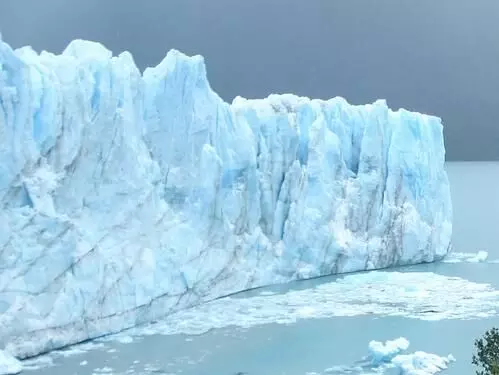
Antarctica Heatwaves may accelerate loss of ice, raise sea levels
text_fieldsNew York: Recent research headed by an Indian-origin scientist shows that Earth's coldest and driest continent saw an exceptional heatwave and extreme precipitation in 2022.
In the 33rd annual State of the Climate Report, an international assessment of the global climate published in the Bulletin of the American Meteorological Society, researchers report the world saw another year full of extreme weather events resulting from climate change in 2022, from intense storms to soaring temperatures and rising sea levels. Antarctica was no exception to this.
“My hope is that the public starts to see both the fragility and complexity of these polar regions,” said Rajashree Tri Datta, a research associate in the Department of Atmospheric and Oceanic Sciences at Colorado University-Boulder.
While Antarctica may seem isolated from the rest of the world, changes to the icy continent could significantly impact the rest of the world.
“Most of the planet’s freshwater is held on the ice sheet of Antarctica. What happens there ends up affecting coasts across the world, and what affects coasts across the world impacts everything from agriculture to migration patterns,” Datta said.
In recent years, scientists have observed rapid sea ice decline and enhanced warming there. Regions of Antarctica, such as the West Antarctic Ice Sheet, have started to lose ice rapidly, contributing to sea level rise.
Datta and her team report that for six days last March, a large region of East Antarctica experienced temperatures exceeding 18 degrees Fahrenheit (10 degrees Celsius) above the historic March average from 1991 to 2020.
The temperature recorded at a weather station in the interior of East Antarctica reached a record-breaking 14.7 F (-9.6C) on March 16, 2022, more than 79 F (44 C) higher than the average March temperature at that location.
Normally, March marks the transition from summer to winter in Antarctica, and the temperature drops rapidly. Following the heatwave, the Conger Ice shelf, a floating tongue of ice the size of Rome, collapsed in East Antarctica. This ice shelf had become increasingly vulnerable over the years.
The collapse of floating ice shelves can often hasten the loss of upstream glaciers, resulting in ice loss and sea level rise.
As people around the world also experienced more frequent and intense heat waves in 2022, Datta said the team’s research provides an opportunity to communicate with the public about climate change in Antarctica in a way that resonates with them.
"They know what a heatwave means. They experience it in their daily lives, and it is impacting Antarctica as well, although in very different ways" Datta said.
With inputs from IANS






